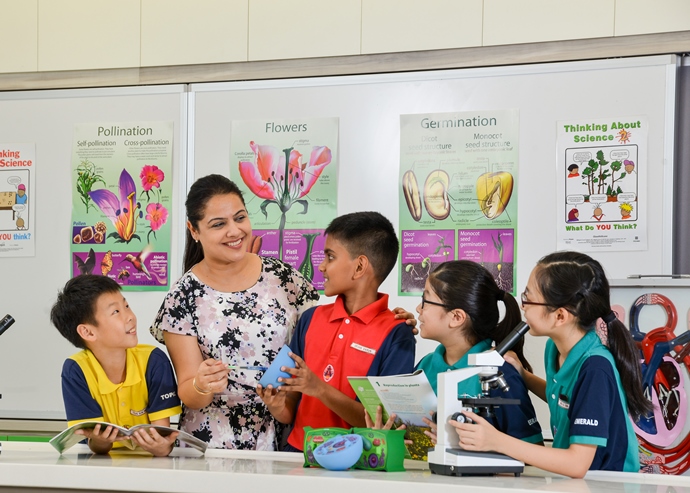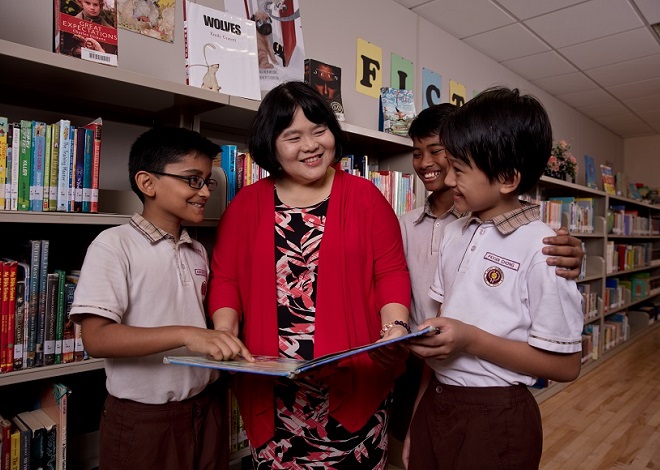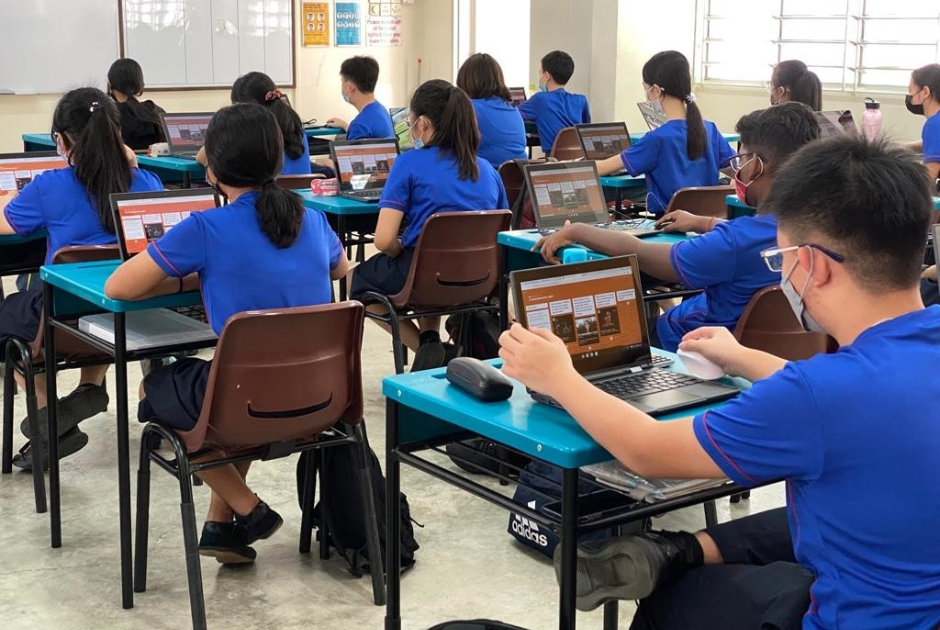Sarabjeet Kaur d/o Hardip Singh, Anderson Primary School, President’s Award for Teachers 2016 finalist
In Sarabjeet’s class, chopsticks, pincers, straws and spoons are laid out on a table. She gets her students to use these tools to pick up various pieces of food. Some succeed, others don’t, but all of them laugh and learn.
It’s a Science lesson on the kinds of beaks that birds have, and how they eat with them. But at its heart is an understanding that children, too, are different – each with their own motivation and learning needs.
To keep her students engaged, Sarabjeet varies her class activities, such as the one on beaks. As a Lead Teacher, she gives her students work based on their ability, with filler activities to keep the faster ones occupied. She actively encourages her stronger students to help the weaker ones: “I always tell them that when you teach somebody, you are actually learning it yourself again,” she says.
Being sensitive to her students’ learning appetites, Sarabjeet introduced basic Science concepts to her Primary 2 students, even though they weren’t due to learn them for another year. She noticed that storybooks used in their English classes could serve as a great springboard to teach them about the body parts of animals, and how to identify animal groups. To get her lower primary English colleagues on board, she came up with resources on how to weave these concepts into their lessons, and the kids love it.
I believe in you
Truly motivating children, however, goes beyond the harnessing of sound pedagogy. It involves taking a personal interest in their well-being, and believing in their ability.
Sarabjeet cites the example of a bright Primary 6 student with a poor attitude. He was disruptive in class and disinterested in all subjects. She took time to sit and speak with him over several afternoons, asking about his friends, the things that made him happy about school, and his personal success stories with Maths. The boy was caught off-guard – he thought he’d been hauled over to ask why he hadn’t turned in his homework. Slowly, he began opening up, and his behaviour improved.
This method, known as Appreciative Inquiry, is of such interest to Sarabjeet that she did a joint research project on it with teachers from other schools. “It’s about drawing on a student’s positive experiences to make him feel good about himself. This boosts his confidence, morale and motivation.” She’s shared the method with her colleagues, and those who have tried it have given her positive feedback so far.
Sometimes though, there’s no substitute for traditional intervention. One of her students had a phobia of Maths and would freeze up before an exam. Sarabjeet spoke with the girl’s parents and realised they were putting a lot of pressure on her. She encouraged them to give her some space to relax, and things got better. The girl was so grateful that, moments before her PSLE Maths paper, she asked the invigilator to call for Sarabjeet, who quickly ran over with a cup of Milo. The student hugged her.
It goes both ways
Motivation is, of course, a two-way street. Much as Sarabjeet gives to her students, she also draws inspiration from them.
A girl in her form class once met with a serious road accident less than half a year before her PSLE. She returned to school a month later with a limp, slurred speech and illegible handwriting. Sarabjeet was concerned that the girl would not be in good form to take the examination, but she and her family were determined to see it through. The teachers doubled down on their efforts, providing special coaching sessions even as the student went through physiotherapy.
Over time, her faculties slowly recovered. Eventually, she did well in her PSLE and went on to the Express stream in secondary school. “It was an inspiration to the whole class, the whole school,” says Sarabjeet. “We went all out. We helped her, but she helped herself more.”
Reflecting on that episode, Sarabjeet felt moved by the student’s grit and determination. “She could have easily said ‘I can’t do it’. She could have asked for an exemption from the PSLE. But she wanted to prove to herself, her parents and her teachers that she could, and she did.”
Today, Sarabjeet shares this story with her students, as a way of passing on her motivation, and will do so with all her future students. “These things stay with you for life.”






